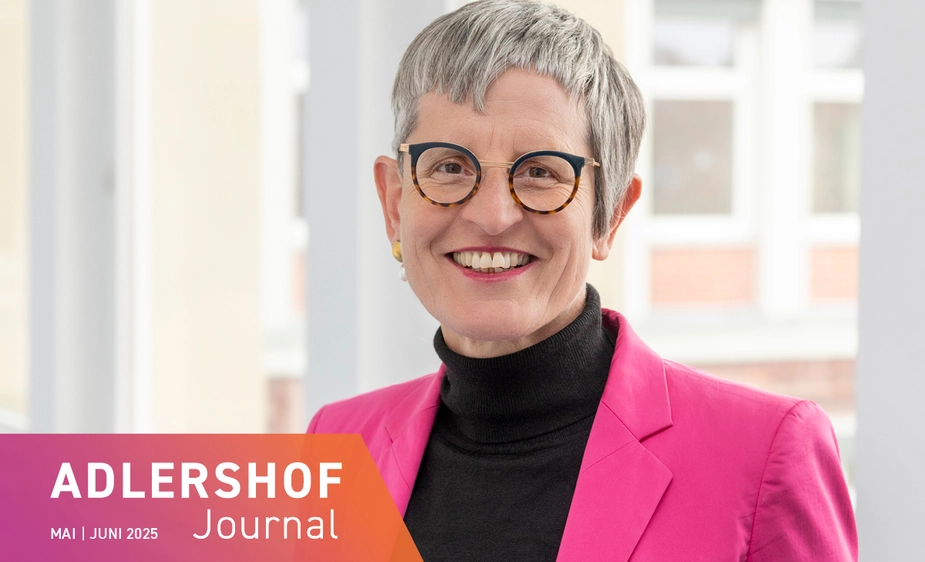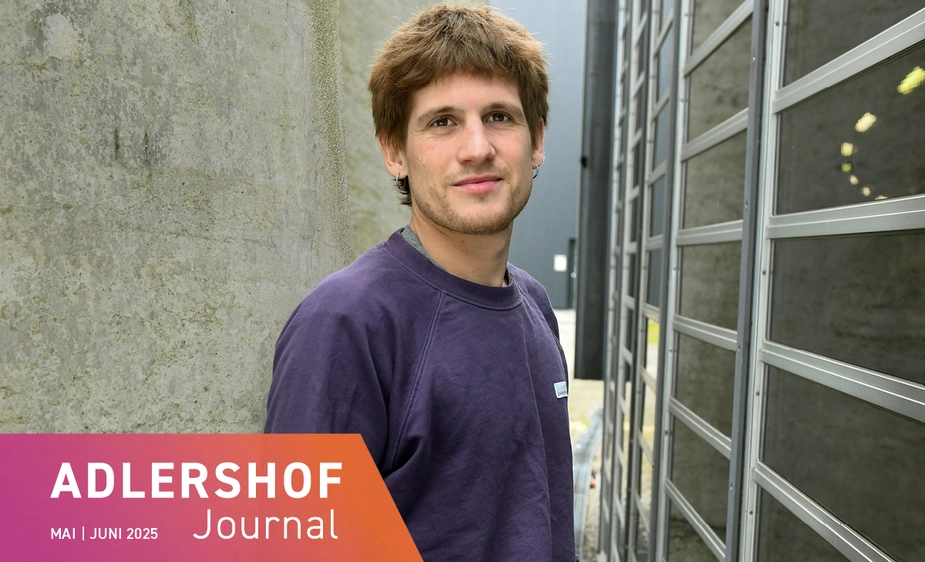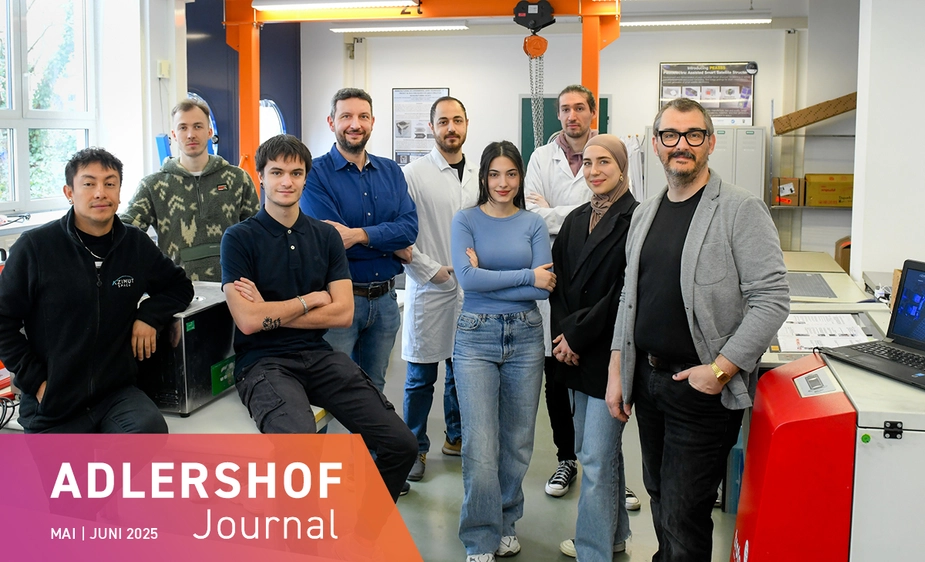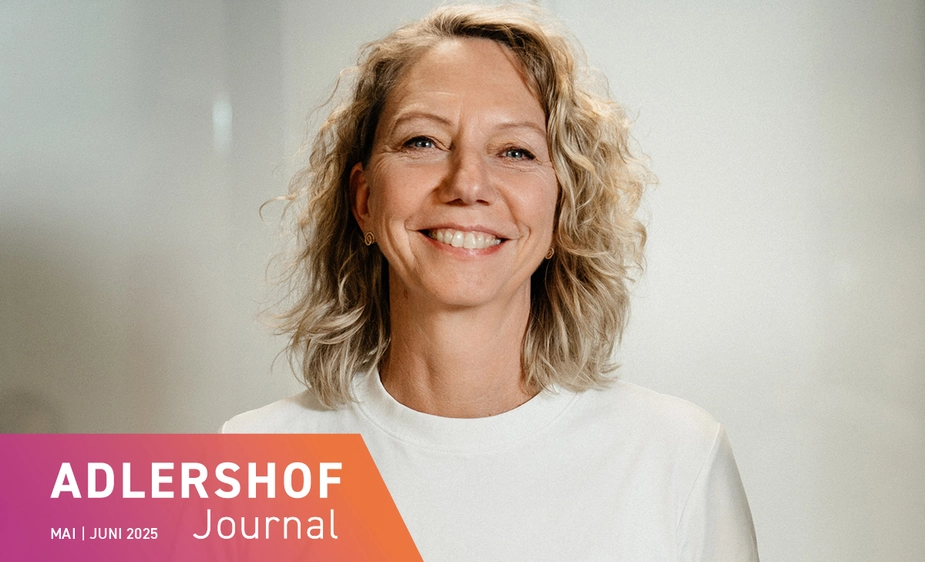Diversity wins
Berlin is recognised as an outstanding international technology hub. How to maintain this reputation, openness and diversity?
Berlin is recognised as an outstanding international technology hub, particularly Adlershof. But that reputation is at risk if the political and social climate continues to move away from openness and diversity. After all, international talent is in demand across the globe.
Collaboration of people of various backgrounds, experiences, and perspectives is a thorn in the eye for some, as evidenced by the developments in the US but also the outcome of the Germany’s recent federal election. A regrettable trend.
“Especially in science and research, where the goal is to find new solutions and innovative approaches, diversity is a crucial driver of success,” says Claudia Eggert, member of the presidential board of the Federal Institute for Materials Research and Testing (BAM). Eggert, who holds a doctorate in engineering, is responsible for research coordination and transfer, international cooperation, and support for early-career researchers at the institute. She refers to numerous studies showing that diverse teams are more creative, more capable problem-solvers, and deliver better outcomes in the long term.
“The reason is obvious,” says Eggert. “Different perspectives encourage debate and challenge existing assumptions, which leads to more robust and innovative solutions.” In materials research, for instance, developing new substances or testing methods requires interdisciplinary approaches. “Teams that are diverse in terms of culture, expertise and personality bring a range of ways of thinking to the table and that increases the chances of groundbreaking discoveries,” says Eggert with emphasis.
Another benefit is greater adaptability: “Organisations that foster diversity are more flexible, more resilient, and more successful,” says Eggert. They are better equipped to address global challenges and tap into a wider pool of talent. For an internationally operating research institution like BAM, this not only means higher scientific excellence, but also a stronger position in global competition.
Like many, however, Eggert fears that current political developments—particularly the rise of right-wing movements in some countries—could result in a rollback on diversity and international engagement. “There are political forces in both the US and Europe questioning the value of diversity itself and who are promoting policy driven by national agendas.” In the long term, this can hinder scientific exchange, make international cooperation more difficult, and limit access to skilled workers and professionals.
Professionals like Beñat Alberdi Esuain, a researcher at Helmholtz Centre Berlin for Materials and Energy (HZB), who was among the recent finalists for the Adlershof Dissertation Prize in recognition of outstanding scientific achievements. The Spanish scientist has been living and working in Germany for four years and values working in international teams: “It’s enriching when people from different cultures bring different perspectives,” he says. “It also makes solving scientific problems easier.” Adlershof, he adds, offers an excellent environment for multinational teams. Even though everyone speaks English, the Basque native would welcome more accessible German courses on campus, scheduled in a way that better fits around work commitments. He has not yet detected any changes as a result of the shifting political climate.
Riccardo Nadalini, too, remains largely unconcerned about the outcome of the recent federal election. “Compared to other countries, the political situation in Germany feels almost like harmless theatre,” says the Italian native, who has lived in Germany for 25 years. Nadalini is managing director of Azimut Space GmbH, a research, engineering, and development services provider in aerospace technology.
His 17-strong team brings together around a dozen different nationalities. Typical for the industry, everyone speaks English, making language barriers a non-issue by and large. “Our door is open to everyone. Skin colour, gender or background make no difference,” says Nadalini. “Despite our diversity in nationality, our professional biographies are similar: All staff members are united by the fact that they are highly qualified engineers.”
And Nadalini would gladly welcome more of them to Azimut Space. There is no shortage of interest from abroad. “Many of them stumble over the high barriers put up by the German bureaucracy,” says Nadalini, getting to his key concern about Germany as a business location. He goes on: “Rather than the political climate, our employees worry about high cost of living, especially rents.” If nothing changes, this could deter the skilled professionals the country urgently needs from coming to Germany in the future.
Whatever the reason: “The community on this site relies heavily on international researchers and trainees—especially in laboratories,” says Bessie Fischer-Bohn, head of HR at WISTA. “Without them and their diverse talents, Adlershof’s economic success is in jeopardy.” That’s why WISTA Management GmbH, as a state-owned company, takes a clear stance in favour of diversity and tolerance. Under Fischer-Bohn’s leadership, WISTA is holding a Diversity Conference for the third time. “With this year’s theme, Sharing Differences, the conference aims to create a unique space for inspiration and exchange in the Adlershof Technology Park and to send a strong message for democracy, progress and the future,” says the organiser. “It’s also about showing just how broad the concept of diversity really is.” The spectrum everything from social background to neurodiversity.
There is no shortage of opportunities to champion diversity. “To actively promote diversity, BAM engages in networks such as Berlin Research 50. We take part in Sticks & Stones, Europe’s largest LGBTIQ+ job and career fair, and our Welcome Office supports international staff members,” says Eggert. The institute has also signed the German government’s Diversity Charter. “By signing the Charter, we commit to creating a working environment where all employees can work together free from prejudice—regardless of gender, nationality, ethnic background, religion or belief, disability, age, sexual orientation or identity,” explains Eggert. BAM will continue to specifically target international researchers and skilled workers, offer them attractive working conditions, and make it easier for them to access jobs. Because one thing is certain, Eggert emphasises: “Diversity is not merely an end in itself, but an essential driver of innovation and scientific progress.”
Chris Löwer for Adlershof Journal



